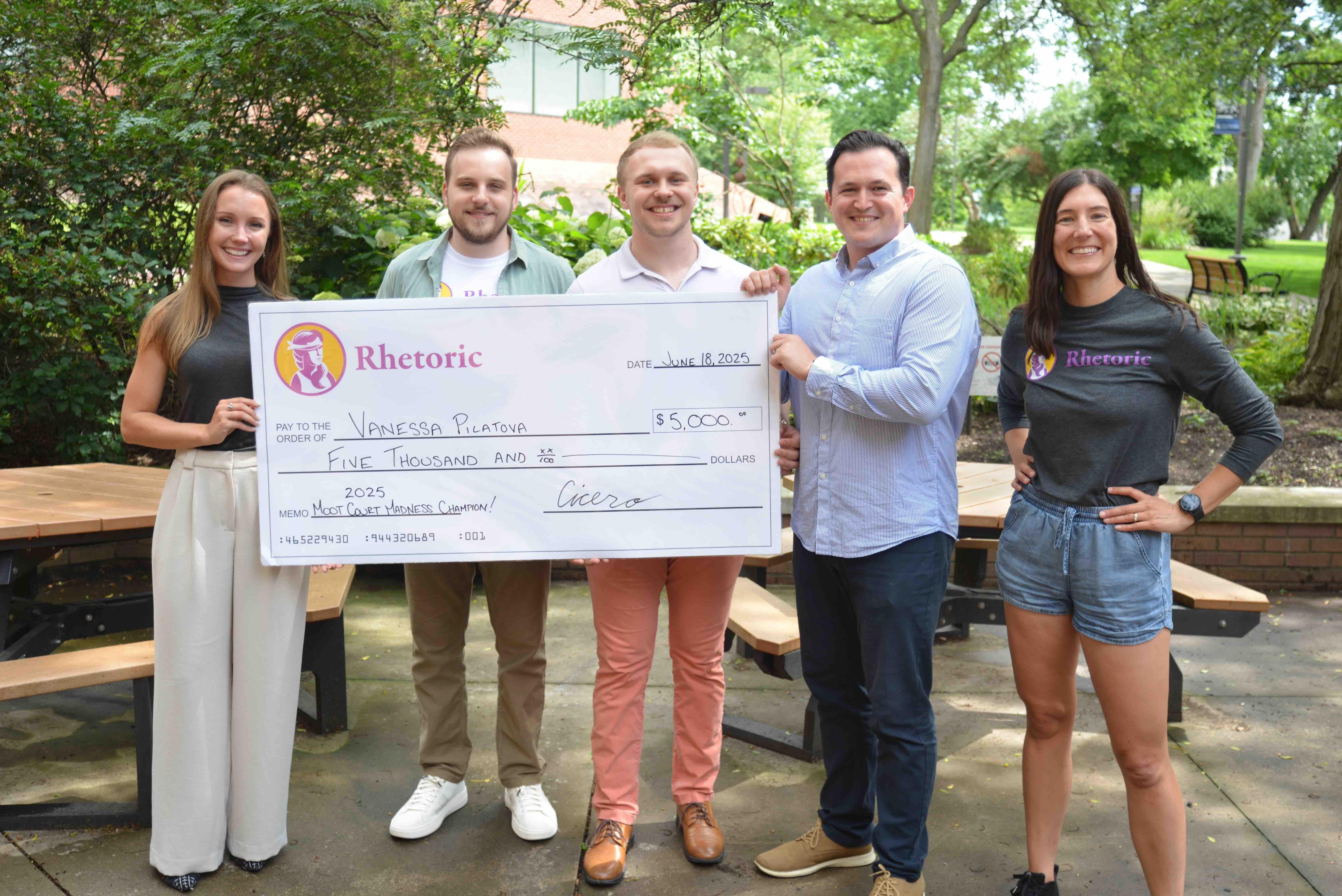Rising 3L Vanessa Pilátová recently took victory in the first-ever Rhetoric Moot Court Madness competition. The first of its kind to be judged by AI, the competition brought together 64 students representing 27 law schools and 17 states, including many non-traditional JD students. Cicero, Rhetoric’s AI judging product, scored each head-to-head matchup with the highest score from each contest advancing.
“Professor Mercer forwarded the competition application to members of the Vis moot court team, and the AI platform seemed so interesting that I applied for the competition,” said Pilátová. “I’m glad I did! I learned a lot about the cases and about an incredible platform and tool.”
Cicero is an AI tool that allows users to record practice sessions of arguments, presentations and pitches and receive AI analysis of speech, delivery and non-verbal cues. Users can then refine and improve their presentations based on actionable insights and targeted feedback. The software is used by firms and schools across the United States for practice and preparation for everything from cold calls to closing statements.
“You could record multiple practice rounds, analyze transcripts and use the feedback to fine-tune your performance before recording your final submission,” said Pilátová. “The feedback was amazing. It is truly humbling to see how many times you use filler words or are unclear when you speak. Cicero did a great job highlighting the strengths and weaknesses in my argument, which allowed me to make targeted improvements throughout the competition.”
Pilátová is also a member of the Vis International Moot Court team, which had its best year yet in the Willem C. Vis International Commercial Arbitration Moot in Vienna. The CWRU team reached the elimination round of 32 out of 400 competing teams for the first time in school history and tied as the final remaining American school in the competition. Pilátová was also awarded an honorable mention for the Martin Domke Award for Best Individual Oralist.
“Balancing the Rhetoric competition with other commitments was definitely a challenge,” she noted. “At one point, I had to prepare for and record a submission late at night on the balcony of our Airbnb in Vienna during the Vis competition. I was honestly moments away from dropping out that week, but my Vis teammates encouraged me to keep going and I am so incredibly grateful for their support! It really made all the difference.”
Pilátová recommends the competition to other students interested in oral advocacy, lauding the unique opportunity it provided to refine her arguments with personalized feedback from the AI tool.
"We were thrilled to see that students loved the competition, but also that they loved Cicero as a resource for preparation and improving their performance,” said Rhetoric CEO Luke Yingling. “We were also pleased to know that because it was a remote and asynchronous competition, many non-traditional students were able to participate. More than anything, we're excited to celebrate Vanessa's victory. Prevailing over a field of 64 students from excellent schools is an incredible feat.”


